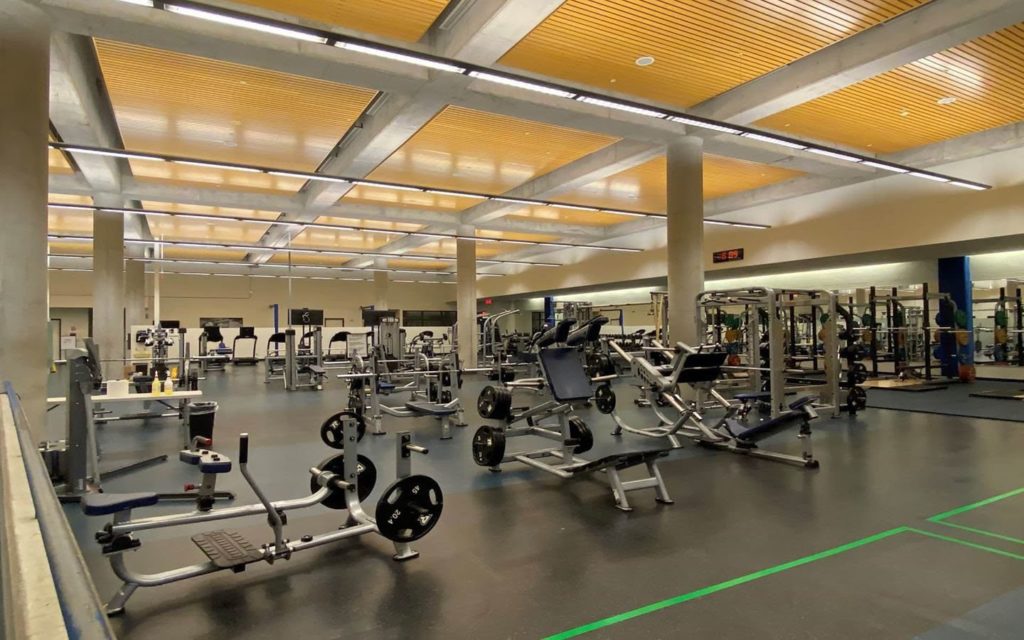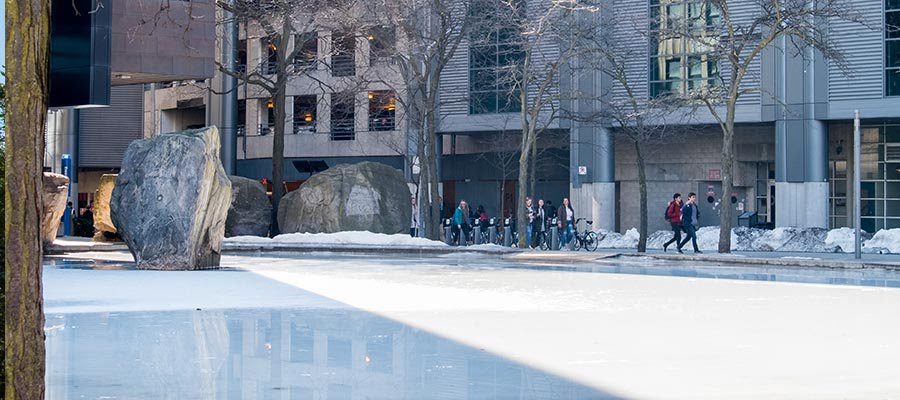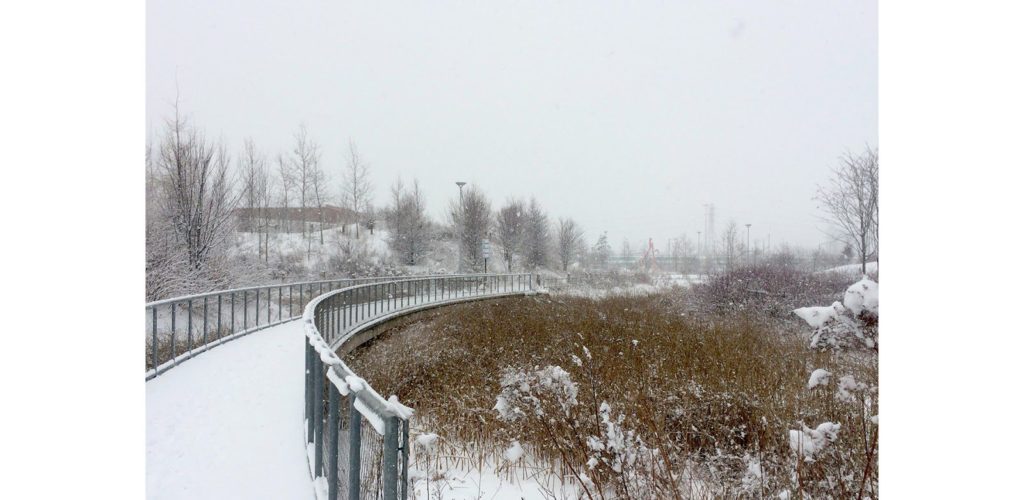Amid the dropping temperatures and the tightening of public health guidelines, Ryerson students hope to stay fit and preserve good mental health throughout the winter months

A global pandemic was more than enough to get Owen Zilles to start exercising daily.
The second-year photography student from Kitchener, Ont., did not frequent the gym last year as a freshman. But as the 2020 winter semester was ending, and Toronto entered its first COVID-19 lockdown, Zilles bought himself a pull-up bar and started doing daily bodyweight exercises inside his Pitman Hall residence to achieve some sense of regularity.
“That boredom, that lack of routine — exercise is how I coped with that,” he said.
Like Zilles, many students at Ryerson have turned to physical activity as a healthy way to cope with the mundanity of the pandemic. But now that indoor fitness facilities have closed down once again (including those on Ryerson’s campus), and as we hurtle towards the year’s darkest and most frigid months, students living in downtown Toronto hope to continue finding ways to stay active and sane throughout the winter.
In a Wednesday press conference, Toronto Mayor John Tory announced that the city is taking steps to make safe, outdoor physical activity available to its residents.
Under lockdown conditions, said Tory, some of the city’s regular winter activity venues, like its 54 outdoor skating rinks (on reservation basis), its 23 tobogganing hills, its 57 winter tennis courts, and its eight disc golf courses will remain open.
The city will also create and maintain eight new walking and snowshoeing tracks on its five golf courses, launch new guided outdoor walk-fit programs, and plow and pave greater portions of 60 of its high-use parks. Tory said the recreation programming could be altered throughout the winter, as advised by Toronto Public Health.
Zilles is grateful that rinks will remain open.
“I don’t think I’d be comfortable doing indoor activities even if they were available,” he said, “but getting to skate and play hockey on Lake Devo will be nice.”
The city announced on Thursday that while ice skating will be permitted, “team sports, including hockey,” for the time being, will not be permitted on city rinks.

Despite some restrictions, students like Zilles who hope to stay active this winter will be met with encouragement from the city, whose signalling is much different than it had been in the spring. In the early pandemic months, public health officials recommended that residents stay inside their homes as much as possible. A few months after those initial lockdown orders, Ryerson University and others published a national study, which found that 64 per cent of children and youth were being less physically active than usual in the spring.
Howie Dayton, the city’s director of community recreation in Parks, Forestry and Recreation, said that an increasing body of knowledge around how COVID-19 is transmitted allows policy-makers to tailor restrictions so as to encourage safe and active living this time around.
“There is a public health recognition that people need physical activity and exercise,” said Dayton. “So we are creating many opportunities for people to get out of their houses.”
In regular times, one in five Canadians reported feeling “winter blues.” Research shows that physical activity could help mitigate these blues. A Swedish study involving almost 400,000 participants, found that ski racing in the winter was associated with lower long-term incidence of depression. To maintain strong mental health over the winter, Dayton recommends residents explore the city and be “safely adventurous.”
“Try something you have never done before — like skating or cross-country skiing at one of our snow loops we are creating at the golf course.”
Students who are less keen to join popular activities can find other ways to get fresh air. A large body of research suggests that simply being immersed in natural environments can improve mood and reduce stress. Shawn Micallef, an author and professor who writes about how people move around inside the Greater Toronto Area, said that, sometimes, a nice walk is all you need to recharge the mental battery and feel refreshed.
“Just bundling up and going for a short walk can make the outside seem less hostile,” he said. “Going in the morning when there is snow on the ground, there is nothing more bright — you get a huge injection of sunlight.”
Micallef recommends students who might feel trapped downtown to walk to Corktown Common, just southeast from the foot of Cherry Street. The park is filled with shrubs and built on a hill with a nice view of the city. From there, students can easily access the Don Valley Trail by walking north, or the Leslie Street Spit and Tommy Thompson Park by going south.

He also recommends students procure a crazy carpet from Canadian Tire and brave the tobogganing hills at Cabbagetown’s Riverdale Park.
“Sometimes you have to give people obvious things to nudge them out of what they think they can do.”
Elena De Luigi, a first-year master of journalism student, said she might follow Micallef’s advice and take advantage of some of the city’s new offerings.
De Luigi plans to move to Toronto from her home in St. Catharines, Ont., by January, but she still has reservations about moving mid-lockdown. It would involve transferring her current in-person sessions with a new personal trainer onto Zoom. Yet, she said the city’s new snowshoeing trails, organized walking opportunities and heightened maintenance of parks might make the transition back to Toronto a bit easier.
“I’ve integrated physical activity back into my life and I plan to find ways to keep exercising,” she said. “Being able to get a breath of fresh air is better than sitting at home.”
How to stay active this winter:
COVID-19: ActiveTO: City’s recommendations for how to be active in Toronto
Best walking/running trails in Toronto – The Daily Hive
Downhill skiing and snowboarding centres
ParticipACTION is back with its Great Big Move campaign.
This article may have been created with the use of AI tools such as
